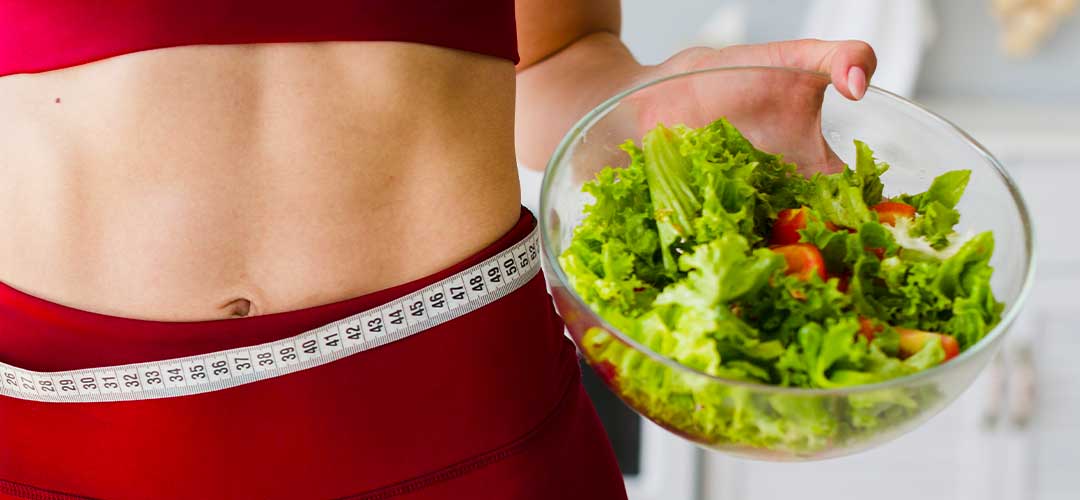
Maintaining a healthy weight for your body type is key to your overall health.
Healthy weight management is thought to help prevent certain diseases and keep you feeling your absolute best physically and mentally.
Following a portion-controlled diet may help with weight loss and weight management. However, dieting or eating less may lead to nutrient gaps that shouldn’t be ignored.
What is a Portion-Controlled Diet?
One common approach to dieting is a portion-controlled diet. A portion-controlled diet entails eating smaller portions of food than you usually do. This helps cut calories and, potentially, weight. A portion-controlled diet (sometimes called a low-calorie diet) may also be an approach to healthy weight management.
One benefit of a portion-controlled diet is that you don’t necessarily have to avoid any specific foods. Food restriction isn’t a sustainable weight loss practice as it often causes you to want whatever food you restrict even more. Instead, you can practice portion control with all foods while on a portion-controlled diet.
Like other diets, however, a portion-controlled diet may cause nutrient gaps since you are eating less food than usual.
Nutrients Missing from Low-Calorie Diets
It’s important to understand your nutritional needs while on a diet, as cutting calories may also mean cutting nutrients.
Diets typically focus on limiting macronutrients (carbohydrates, fat, and protein) because that’s where the calories come from. Consequently, however, fibre and micronutrients (vitamins and minerals) may also be limited on a low-calorie diet.
According to one study, portion-controlled diets, like Weight Watchers (now WW), may be short in the following nutrients:1
- Vitamin B12
- Calcium
- Zinc
- Magnesium
- Iron
- Dietary fibre
Other nutrient gaps may also be possible when following a low-calorie or portion-controlled diet.
Low-Calorie Diet Side Effects
A low-calorie diet can be both beneficial and risky. Reducing your food intake can come with side effects. You may experience obvious side effects, like dizziness, upset stomach, brain fog, and tiredness from eating less. Other side effects may be less obvious to you, though.
Eating less food means you may not meet your nutrient needs, especially when it comes to protein, fibre, vitamins and minerals. Micronutrient deficiencies are a common side effect of low-calorie, portion-controlled diets.
Symptoms of a micronutrient deficiency may vary depending on the nutrient. Common signs of a vitamin and mineral deficiency may include:2
- Skin rash
- Hair loss
- Brittle nails
- Poor night vision
- Swelling
- Joint pain
- Muscle weakness
- Bowel changes
Prolonged micronutrient deficiencies may increase the risk of certain health conditions, like heart disease, osteoporosis, and even cancer.3
Too little fibre in your diet may also cause problems. Poor fibre intake is common in low-calorie diets and may lead to constipation, bloating, and general stomach discomfort. A low-fibre diet has also been linked to an increased risk of insulin resistance, weight gain, and heart disease.4
How to Avoid Nutrient Gaps
It’s possible to get the nutrients you need and maintain energy on a low-calorie diet. However, doing so will take some planning. While food is the best way to get the nutrients your body needs, dietary supplements are the next best option. Dietary supplements provide nutrient support when eating less by helping fill nutrient gaps. You may consider certain supplements, including fibre, omega fats, protein, and vitamins and minerals.
Take Care of Your Gut
Gut health while dieting is a key part of weight management, and it starts with your microbiome. A healthy gut has a proper balance of good and bad bacteria. Nutrients like fibre, probiotics, and prebiotics can help you achieve a healthy gut, especially when following a diet.
Fruits and vegetables are an excellent source of fibre and are often included in a portion-controlled diet. You may still need to use a fibre supplement to ensure you’re getting enough of this vital nutrient, though. Research shows that adequate fibre intake may support weight loss efforts.4
Prebiotics and probiotics help increase the number of good bacteria living in your gut, which supports digestion. You can obtain some prebiotics and probiotics for digestion from fermented foods like yoghurt and kefir. Prebiotic and probiotic supplements may also be used while on a low-calorie diet and have been found to improve the gut microbiome in various studies.5
Don’t Forget Fat
Some diets try to cut fat out completely, but that’s not necessarily healthy. Like the other two macronutrients, fat has many important benefits. However, the types of fats you choose while on a portion-controlled diet are key.
The omega fats (omega-3, omega-6, and omega-9) are heart-healthy, anti-inflammatory fats that are important to your overall health. Some research suggests that these healthy fats may also facilitate weight loss, but more research is needed.
Omega-3 fatty acids are probably the most researched of the omega fats. Omega-3s are thought to have benefits for energy and may help you fight off fatigue while on a low-calorie diet.6
Omega fats are found in a variety of foods, from fatty fish to nuts and seeds. An omega-3-6-9 supplement may also help you reach your goals.
Protein is Key
When cutting calories, it’s vital that you still eat enough protein. Research shows that protein is an important part of weight loss. Evidence suggests that eating more protein than is recommended may help reduce fat mass while preserving muscle mass.7
Getting extra protein can be challenging, though, especially when you’re trying to eat less than normal. Many experts recommend using a protein powder supplement to help you meet your protein goals while on a diet.
Consider Micronutrients
Following a portion-controlled diet may cause micronutrient deficiencies. To avoid nutrient deficiencies while on a diet, it’s recommended that you use a high-potency multivitamin.
Multivitamins typically contain both vitamins and minerals, like the ones that may be missing from a portion-controlled diet. According to research, vitamin B12, calcium, zinc, magnesium, and iron may be lacking in a portion-controlled diet.1
Using a multivitamin increases your overall intake of nutrients while helping fill nutrient gaps that may be caused by a diet.
Summary
A portion-controlled diet may help you reach health goals. Sometimes, however, following this type of diet may cause nutrient gaps.
It’s smart to be aware of potential gaps in your nutrition when following any diet. Choosing the right nutrient-dense foods and using dietary supplements may help you avoid potential nutrient gaps.
References
- G Engel M, J Kern H, Brenna JT, H Mitmesser S. Micronutrient Gaps in Three Commercial Weight-Loss Diet Plans. Nutrients. 2018;10(1):108. Published 2018 Jan 20. doi:10.3390/nu10010108
- Merck Manual. Symptoms and Signs of Nutritional Deficiency.
- Kiani AK, Dhuli K, Donato K, et al. Main nutritional deficiencies. J Prev Med Hyg. 2022;63(2 Suppl 3):E93-E101. doi:10.15167/2421-4248/jpmh2022.63.2S3.2752
- Barber TM, Kabisch S, Pfeiffer AFH, Weickert MO. The Health Benefits of Dietary Fibre. Nutrients. 2020;12(10):3209. doi:10.3390/nu12103209
- Hills RD Jr, Pontefract BA, Mishcon HR, Black CA, Sutton SC, Theberge CR. Gut Microbiome: Profound Implications for Diet and Disease. Nutrients. 2019;11(7):1613. doi:10.3390/nu11071613
- Xiong Y, Li X, Liu J, et al. Omega-3 PUFAs slow organ aging through promoting energy metabolism. Pharmacol Res. 2024;208:107384. doi:10.1016/j.phrs.2024.107384
- Moon J, Koh G. Clinical Evidence and Mechanisms of High-Protein Diet-Induced Weight Loss. J Obes Metab Syndr. 2020;29(3):166-173. doi:10.7570/jomes20028
Disclaimer:
Information and other content provided in Lily & Loaf blogs should not be construed as medical advice and should not be considered a substitute for professional medical expertise. If you have any medical concerns, you should consult with your health care provider.







